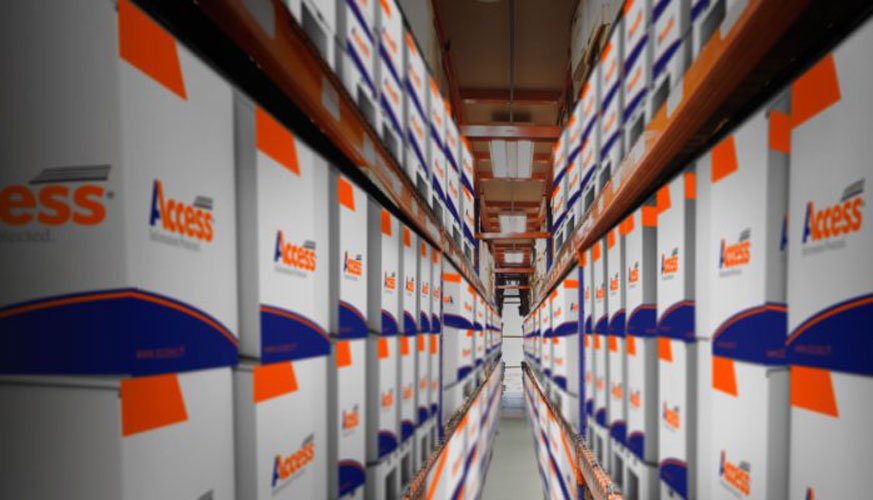
It may be the digital age, but you still have a lot of important papers on file. Maybe you have magnetic tape backups for your most important online data. It’s time to move some of the filing cabinets and boxes off of your prime office real estate.
How do you know who to trust with your most important information? Here are five critical questions to ask a potential offsite storage vendor.
1. What kind of security does your facility have?
If you were considering self-storage, the answer is “none.”
A professional storage vendor should offer 24/7 monitoring. But you need more. Video monitoring won’t help if your documents and tapes are moldering away in boxes. Ask whether the vendor has climate control, especially if you’re storing tapes, which can deteriorate quickly if they’re exposed to sunlight, humidity, over-handling, or sudden changes in temperature.
For your most sensitive records, you may want underground storage. If the vendor offers that, ask about construction of the vault, including the materials used and the thickness of the walls. Underground storage should be able to withstand earthquakes, tornadoes, flooding, and other weather disasters, as well as offering climate controls to suit your specifications.
You should also ask about security from theft. Your files may be locked up tight, but does the vendor do background checks of its own employees? Does it require them to sign confidentiality agreements, take fingerprints, or use biometric scanning?
Finally, ask the vendor if they have an industry-recognized certificate such as PRISM Privacy+, proving that they have the most advanced security and physical safety procedures in place.
2. What about fire suppression?
Vendors should have metal shelving for your boxes and robust fire suppression. But not all fire suppression systems are created equal.
Some facilities place all their sprinklers in a single location below the roof. If an alarm is triggered, they drench everything—even boxes in unaffected areas. Other systems spread out their sprinklers to target specific areas and avoid collateral damage.
In either type of system, fire suppression may be “wet” or “dry.” In a wet system, water remains in the pipes at all times. That means if a pipe freezes and breaks, it could spill water all over your boxes. A dry system doesn’t send water into the pipes until an alarm is triggered.
3. How can I access my files?
Ask if the vendor provides 24/7 online access to your files, including mobile access.
In addition to being able to access your files at all times, you need to know what’s in them. What type of indexing system does the vendor use? Maybe you want them to scan every document a file contains. Maybe scanning the file name is enough for you to find what you want. Make sure the vendor provides the level of service you need.
Ask about the vendor’s information tagging and search functions. Will you be able to find the information you need quickly? What if you can’t find something—what kind of help do they offer?
You may want some people at your organization to view your storage documents, but not everyone. Does the vendor have a way to enforce your company’s governance and security policy?
4. What about compliance regulations?
There are many laws governing the retention periods for various types of documents. Can the vendor keep track of all of them? Can you access this information yourself with the press of a button?
Some documents must be destroyed after a certain period and in a certain way. How does the vendor handle document destruction? Will they send you alerts when it’s time to destroy documents and verify that they have done so?
5. What if I need my files back?
First of all, make sure the vendor has a storage facility that’s convenient to your location. Do they provide delivery service? If you request your boxes, how long does it take them to respond and get them to you?
As you can see, there’s more to file storage than just “box it up and ship it off.”
In this day and age, if you’re holding onto paper documents, there’s a very good reason for it. Those files are important, and they need to be stored securely, handled with the utmost care, and organized so that you can easily find what you need at all times. Don’t settle for a vendor until you find one who answers all your questions and meets all your company’s needs.
Jen Farnham is an industry leader in information governance and data compliance with over 13 years of experience in client success account management for some of the largest companies and government agencies in California.




